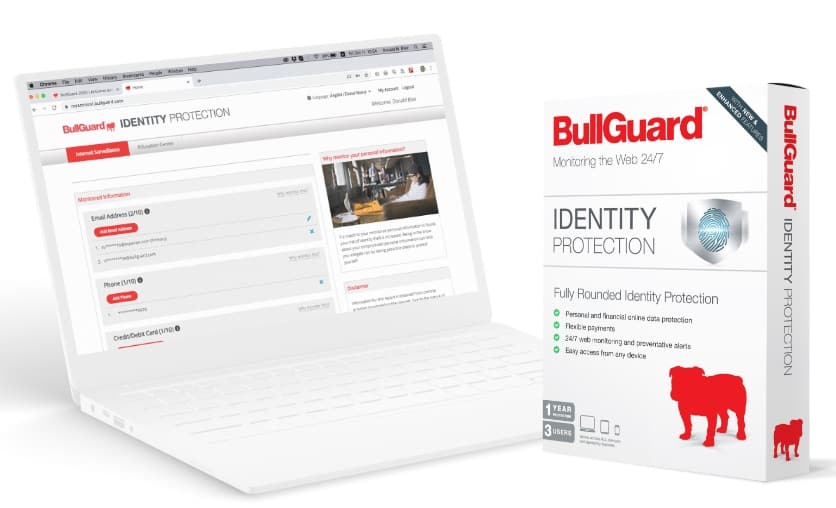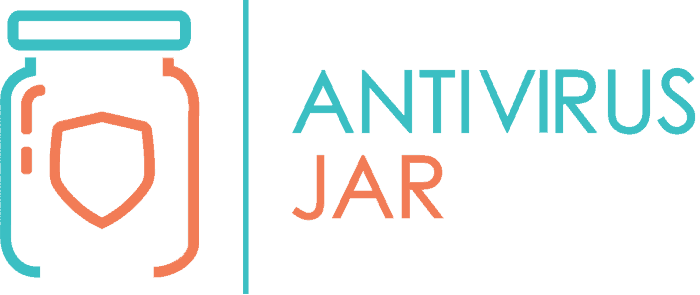
You know your privacy is at stake anytime you go online, don’t you? Big data companies oops-handle information, while your ISP knows what you bought online, last time this year. And that’s nothing compared to snooping, location tracking, or identity thefts that can occur due to spyware. Do you have any idea on how to protect yourself against spyware, one of the most widespread and oldest types of malware encountered online? I can sense this thought coming…
Can Antivirus detect spyware? Antivirus can detect spyware if designed to support spyware detection and removal, file encryption, keystroke encryption, camera & mic blocking access, or Dark Web scanning. These are must-have anti-spyware capabilities of good antivirus software.
Then again, if you look at the offers on the market, you can tell that there are some excellent products, and there are also a lot of awful products. Entrusting your online security to not-so-good antivirus software with limited capabilities can prove dangerous.
So, do you want to know more about what you’re dealing with and how to ensure the best protection? Let me show you what spyware is, how it works, and to what extent antivirus software can or can’t detect it.
How does spyware work?
Spyware is malware that spies on you. Any software downloaded on your device without you knowing or allowing it is considered spyware. System monitors, trojans, keyloggers, or tracking cookies are some examples of spyware.
Drive-by downloads, phishing links, or deceptive pop-ups you click on is how this type of malware can get to you. The moment it invades your device, it starts stealing your internet usage data and sensitive information like your bank account, or your credit card information, or your passwords.
What’s worse, spyware can gain access to your camera and/or microphone. This means it can track and record conversations, accessing even the personal information that you don’t store on your computer.
Fair enough, not all spyware is out to steal your identity. Yet the data it collects has this huge potential to be abused. In case you were wondering, whatever it collects is traded for money with external users, data firms, or advertisers.
While Windows operating devices are more subjected to this type of threat, iOS and Android devices are getting their share. Now, regardless of where spyware is installed, it runs secretly. It doesn’t disrupt the functionality of the device in any discernible way. So, most of the time, you’re clueless about it.
Still, as inconspicuous as spyware works, there are telltales you can watch for. Are you getting more or less occasional pop-ups, online or offline? Are you Running out of storage space without any apparent reasons? Your device is getting slower and crashes unexpectedly? Beware!
Does Antivirus protect against spyware?
In theory, antivirus software is designed to fight viruses. However, an effective antivirus should offer protection against all types of malware. And if your device does get infected, the Antivirus should be able to spot at least some of the harm that has been done and help you work on correcting it.
An example of how Antivirus can protect against spyware is when it blocks your camera. Webcam peppers protection is one of the most essential and effective active defense mechanisms against spyware, closely followed by keystroke loggers protection.
Other mechanisms that top antivirus software uses to protect against spyware:
- Encryption mechanisms for your most important files;
- Extra protective layers for your web-browsers;
- Automatically switching to a secure browser when accessing financial sites;
- Moving you to browse on a secluded, secure desktop;
- Ad blocking, Do Not Track browsing functionalities, and VPN.
As mentioned above, apart from the actual protection, your Antivirus should also be capable of spotting security breaches that may affect your personal information. I’m talking about protection against identity theft, which includes:
- Dark Web monitoring and alerts for whenever your personal information shows up on sale in there;
- Social Security Number monitoring and alerts for whenever new bank or credit accounts are opened in your name;
- 24/7 dedicated support for identity theft claims.
Identity theft protection is typically a feature of the top-tier antivirus suites, which means you don’t get it by default. Even so, many of the top antivirus software on the market offers a more than decent level of spyware detection and removal features.
Is there spyware that Antivirus cannot detect?
Unfortunately, the short answer to this question is yes. Perhaps you’ve heard about mobile spyware that avoids antivirus detections with sandboxing? How about malware that steals your Twitter credentials by posing as a dual instance app? These are just two examples of spyware that Antivirus cannot detect.
But this limited detection capability applies to many other types of online threats. Cybersecurity specialists are kind of struggling to keep up with the threats that hackers release. It takes fighting on so many different fronts to build a robust cyber defense. And the spyware fight is no different.
On the one hand, antivirus software is, by definition, meant to scan, identify, and block viruses after they have entered your device. As much as it tries offering real-time protection or brags about fighting zero-day threats, capabilities are somewhat limited.
On the other hand, spyware is, by definition, meant to go unnoticed. It is specifically built to avoid detection as much as possible. The fact that hackers often spread spyware along with other malware is what makes it somewhat easier to detect.
Usually, when you have trojans or adware roaming around, there’s a high probability you also have spyware that silently runs in the background. And that otherwise would remain undetected.
What is the best Antivirus for spyware?
The best Antivirus for spyware would have to be a full suite with dedicated anti-spyware capabilities. Don’t want to juggle with Antivirus and anti-spyware software (though, technically speaking, it shouldn’t be a problem)? You can definitely rely on one of the following antiviruses for spyware:
Bullguard

Bullguard premium protection offers more than one way to protect you online. With this suite, you get their Comprehensive Identity protection. It keeps your email addresses, phone numbers, credit and debit cards, bank account details, driving license, and passport safe. It monitors the web 24/7 to make sure none of your information is leaked or sold on the Dark Web.
Comprehensive Identity Protection is Cloud-based. This means you have fast and easy access to Identity Protection from any internet-connected device, regardless of platform: PC, Mac, iPhone and iPad, and other types of smartphones and tablets. Click HERE to find out more about their plans.
Norton
If you go for their 360 Standard packages, you’ll get all-around protection without spyware coverage being neglected. In fact, it scores some of the best results in spyware detection tests. And some of the handiest built-in features include:
- Full scanning and removal for a wide range of malware threats;
- Smart Firewall and online threat detection;
- Secure VPN and a strong password manager;
- Dark Web monitoring.
What’s more, they bundle anti-spyware features dedicated to Windows users in particular, and they offer 10 GB of secure storage along with SafeCam for webcam protection.
McAfee
With McAfee, you can clearly tell that you’re getting the most anti-spyware protection for what you’re paying. They are super-focused in this direction, giving you not just Dark Web & Social Security Number monitoring, but also around-the-clock identity theft support.
Unlimited VPN, performance optimization, and safe web browsing are part of the deal, too. But perhaps the most enticing part is their cross-platform spyware detection and removal offer! The only limitation I see is that their identity theft protection is only applicable to US customers!
****
Before I wrap it up, I want to add one more thing I didn’t really get the chance to develop throughout this article. Antivirus software has mechanisms to identify spyware on your device. It has layers of protection to ensure that you will not get infected but is not a guarantee that you will be safe. Spyware or any other malware is sophisticated and is designed to fly under their radar. If you think you are infected with spyware, it won’t hurt to use anti-spyware software.
Just always be extra careful when choosing where you’re downloading it from! Spyware in disguise is available for download, pretending to be anti-spyware software! Better check out the reputable cybersecurity companies and see what dedicated tools they offer.






